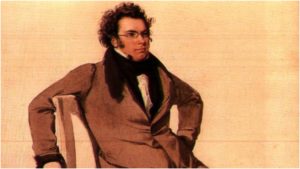
A Look At Four Operas By Franz Schubert
By David SalazarFranz Schubert, born on Jan. 31, 1797, is universally hailed for his incredible ability to write for the voice.
His song cycles are among the most beloved in the entire repertoire, championed by the world’s greatest singers.
But Schubert also composed opera, though to this day, none have managed to establish a foothold in the standard repertoire. Here is a look through Schubert’s operatic output and a kind reminder that the genius’ craft for the vocal instrument extended beyond art song.
Singspiel vs. Opera
As a German composer, Schubert found himself caught up in the evolution of the operatic form and the way it was imagined in his native country. As a result, not all his works for the stage are operas. A good portion are in fact Singspiel, including (all English translations for the titles) “The Mirror Knight,” “The Devil’s Pleasure Lock,” “Adrast,” “The Four Year Post,” “Fernando,” “The Friends of Salamanka,” “The Guarantee,” “The Twin Brothers,” “The Conspirators,” and “The Minstrel.”
In general, a comparison of Schubert’s singspiel and his operas yields one overall difference – length. His Singspiel rarely top 15 total numbers while his opera are all made up of 20 or more musical numbers throughout. Obviously, the differences are more intricate than simply length, of course, but, for the sake of this particular article, we will leave it at that.
So here is a look at his operas, which are far fewer in output.
Sakuntala – D. 701
The 1820 work was written by Johann Philipp Neumann and is based on the Sanskrit story that tells of the title characters love for King Duschmanta. The work is scored for 14 sopranos, three altos, five tenors, nine basses, chorus, and orchestra and contains a total of 11 musical numbers, Schubert’s shortest output for an opera.
Alfonso und Estrella – D. 732
The composer’s ensuing true opera was written in 1822 with a libretto by Franz von Schober. The opera is known for not containing any spoken dialogue. The opera is written for two baritones, soprano, tenor, and bass. There have been a few recordings of the work with such conductors as Otmar Suitner, Gérard Korsten, and Nikolaus Harnoncourt.
Fierrabras – D. 796
Schubert’s most famous opera was written in 1823 with a libretto by Joseph Kupelweiser. The work has gotten numerous revivals throughout its history with the likes of Jonas Kaufmann appearing in the work early on in his career; that recording was actually released on DVD by the late EMI Classics.
The work has also been recorded on numerous occasions with the most famous recording featuring Cheryl Studer, Karita Mattila, Thomas Hampson, Robert Gambill, among others. There is also a recording featuring Fritz Wünderlich.
The Count of Gleichen – D. 918
Schubert’s “final” opera was left unfinished in 1827. The work is scored for four sopranos, two tenors, six basses, chorus and orchestra. At the time of the composer’s death, the work contained approximately 20 musical numbers in total.


